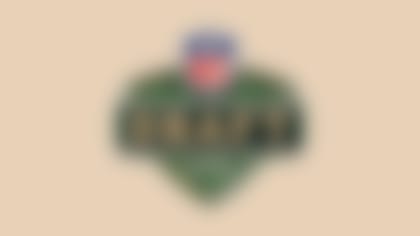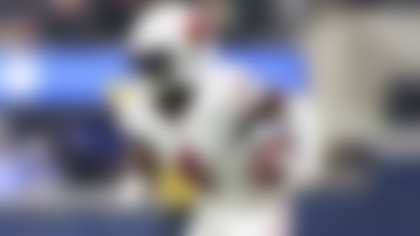A number of 2008 playing-rules changes were adopted by NFL owners at the NFL Annual Meeting in late March. Following are the changes, with comments from NFL head coaches and executives:
» Defensive helmet radios: Teams will now be permitted to have one defensive player on the field with a radio in his helmet. This gives the defense the same ability to communicate its signals as the offense.
"I think it's a great thing," says Denver Broncos coach Mike Shanahan. "I've always been in favor of it."
» Incidental facemasks: The foul for incidental grasp and release of the facemask has been eliminated. Twisting, turning or pulling the facemask will remain a 15-yard personal foul.
» Forceout rule: The forceout rule has been eliminated. A player who receives or intercepts a ball must land with both feet inbounds. This affords the receiver and defender equal opportunity to complete the play.
"We feel that with so many levels of judgment that go into the force-out call it creates a more consistent play when either you get your feet down for a complete pass or you do not," says co-chairman of the NFL Competition Committee Rick McKay.
» Reviewable plays: Instant replay will expand to include field-goal and extra-point attempts as well as illegal forward handoffs. This provides a mechanism for correcting an obvious onfield officiating error.
» Second half coin toss: Clubs will now have the option to defer the opportunity to kick or receive the kickoff to the second half.
"It now gives coaches a third option," says Jeff Fisher, Tennessee Titans head coach and co-chairman of the NFL Competition Committee.
» Muffed snap: It will now be a live ball when a direct snap from center to a player who is in position to receive a hand-to-hand snap goes untouched. It was previously called a false start, but now either team may recover and advance the untouched snap.
» There will be a point of emphasis on a rule this season (although the rule itself has not changed):
Grasping the facemask by all players, including offensive players, will continue to be strictly enforced. Specific attention is to be given to the runner who twists, turns, or pulls the facemask of the defender who is trying to make the tackle.
Runners and tacklers are to be treated identically when this occurs. This action is a personal foul and a 15-yard penalty.
» NFL'S "third-quarterback" rule -- sometimes misunderstood:
Seventeen years ago (1991) the third-quarterback rule was instituted to enable teams to have an emergency quarterback available who was not on the 45-man game-day active roster, since many teams, for strategic purposes, only carried two quarterbacks on their game-day roster.
Everybody thinks they understand the NFL's "third-quarterback" rule. But do they?
The rule states that if a third quarterback is inserted before the fourth quarter, a team's first two quarterbacks cannot be used in the game at any position.
Another aspect of the rule is sometimes misunderstood. It is a coach's decision as to whether a third quarterback will be used.
The active quarterbacks do not have to be injured for a team to use its third quarterback.



